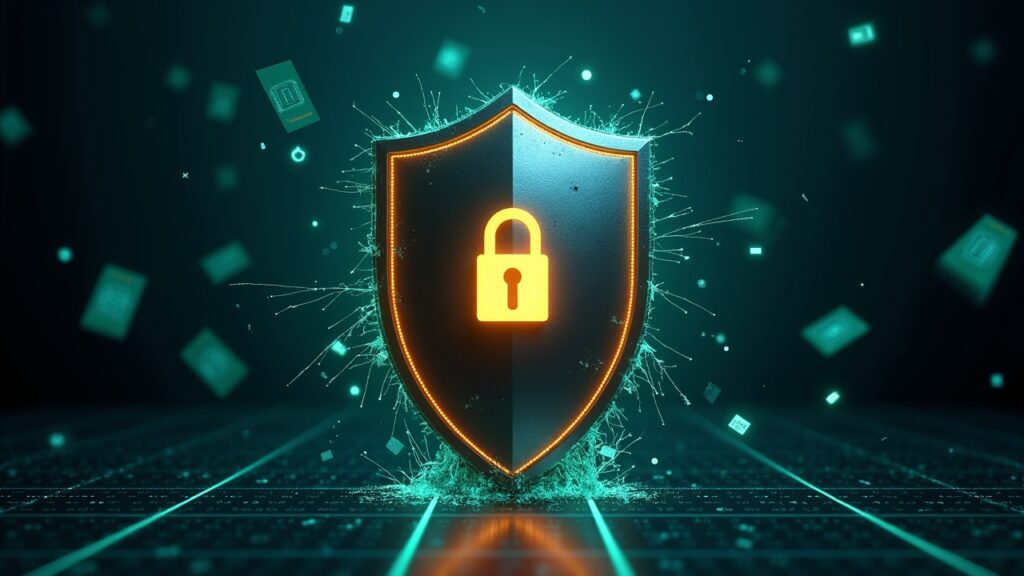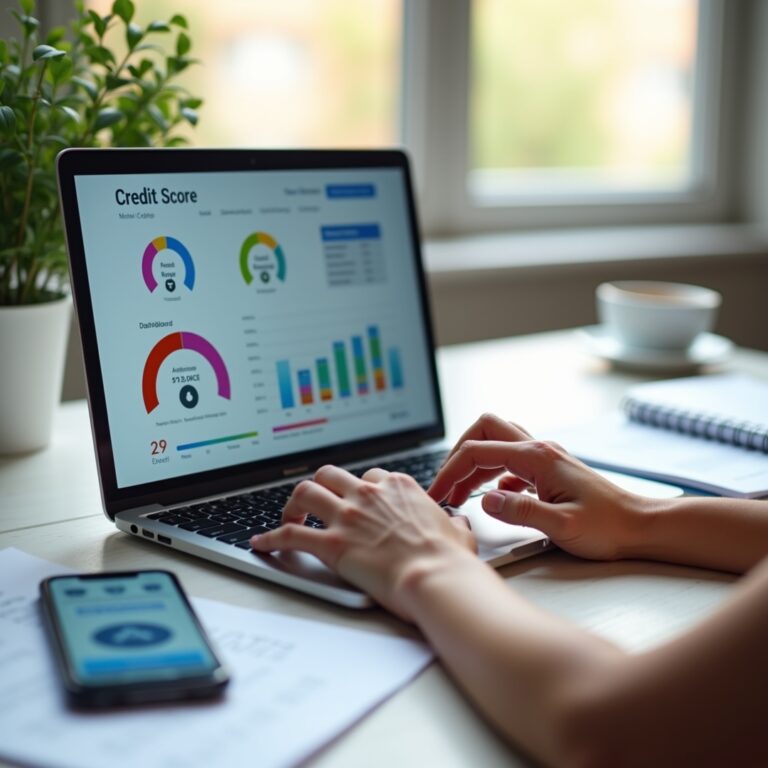Advertisements
Did you know that identity theft affects over 14 million Americans every year? I learned this the hard way when someone opened three credit cards in my name back in 2019. Talk about a wake-up call!
Let me tell you, discovering fraudulent accounts on your credit report feels like finding out someone’s been living in your house while you were on vacation. It’s violating, scary, and honestly made me lose sleep for weeks. But here’s the thing – if I’d been monitoring my credit report regularly, I could’ve caught it way sooner.
That experience taught me that credit report monitoring isn’t just some boring financial task. It’s literally protecting your financial identity from thieves who’d love nothing more than to go on a shopping spree with your good name.
What Exactly Is Credit Report Monitoring?

Okay, so credit report monitoring is basically like having a security camera for your financial life. It keeps tabs on your credit reports from the three major bureaus – Experian, TransUnion, and Equifax. Whenever something changes, you get notified.
I remember thinking it was gonna be super complicated when I first started. Turns out, it’s actually pretty straightforward once you get the hang of it. The services watch for new accounts, credit inquiries, changes to your personal info, and other suspicious activities.
Some monitoring services are free, while others charge monthly fees. AnnualCreditReport.com gives you free access to your reports once a year from each bureau. But honestly? Once a year wasn’t enough for my peace of mind after what happened.
My Credit Monitoring Routine (That Actually Works)
So here’s what I do now, and it’s saved my bacon more than once. Every Saturday morning, right after my coffee, I check my credit monitoring alerts. Takes me like 5 minutes tops.
I signed up for Credit Karma (it’s free!) and also pay for Experian’s premium monitoring. Yeah, I know – paying for something that should be free bugs me too. But after dealing with identity theft cleanup, that $20 a month feels like cheap insurance.
The key is setting up those instant alerts on your phone. Last month, I got a notification about a hard inquiry from a car dealership I’d never heard of. Turned out it was a mistake on their end, but I caught it within hours instead of months!
Red Flags I’ve Learned to Watch For
Through my monitoring adventures, I’ve spotted some seriously sketchy stuff. Here’s what sets off my alarm bells now:
- New accounts you didn’t open (obviously the big one)
- Credit inquiries from companies you don’t recognize
- Changes to your address or employer info
- Sudden drops in your credit score
- Accounts showing late payments when you know you paid on time
Just last year, I noticed my address had been changed to some random place in Nevada. I live in Ohio! Called the credit bureau immediately and got it fixed. Apparently, it was a data entry error, but still – could’ve been way worse.
Free vs. Paid Monitoring: The Real Deal
Look, I’m all about saving money where I can. But after trying both free and paid services, here’s my honest take.
Free services like Credit Karma and the ones your credit card company offers are decent for basic monitoring. They’ll show you your score and flag major changes. For most people, that’s probably enough.
But paid services? They’re like having a bodyguard instead of just a doorbell camera. You get monitoring from all three bureaus (not just one or two), identity theft insurance, and help cleaning up if something goes wrong. After my identity theft nightmare, that support was worth every penny.
Setting Up Your Credit Monitoring Defense System
Alright, here’s exactly how I set up my monitoring system. First, I grabbed all my info – Social Security number, current and previous addresses, stuff like that.
Then I signed up for Credit Karma for the free monitoring. Super easy – took maybe 10 minutes. Next, I went to each of my credit card websites and turned on their free monitoring too. (Why not use everything available, right?)
For the paid service, I compared a bunch but ended up with Experian IdentityWorks. The setup was a bit more involved since they verify your identity more thoroughly. Pro tip: do this when you have time and aren’t stressed – took me about 30 minutes.
When Credit Monitoring Saved My Financial Life

So remember those fraudulent credit cards I mentioned? Here’s the crazy part. The thief had used an old address of mine and intercepted the cards there.
Without monitoring, I wouldn’t have known until either collectors started calling or I applied for a loan and got denied. Instead, I caught it within a week of the first account opening. Still sucked to deal with, but way better than the alternative!
The monitoring service helped me file disputes, provided letter templates, and even gave me a case manager. Honestly felt like having a lawyer in my corner. The whole mess got cleaned up in about two months instead of what could’ve been years.
Your Financial Peace of Mind Starts Today
Listen, I get it. Adding another task to your already busy life seems like a hassle. But trust me on this one – the peace of mind is absolutely worth it.
Start small if you need to. Sign up for one free service and check it once a month. As you get comfortable, you can add more layers of protection. The important thing is just starting somewhere.
Remember, your credit report affects everything from getting a mortgage to landing certain jobs. It’s literally your financial reputation in document form. Don’t wait for something bad to happen like I did!
Want more tips on protecting your financial future? The Clear Cents has tons of practical advice from people who’ve been through it all. Because honestly, we’re all just trying to figure this money stuff out together, right?




[…] more tips on improving your credit and managing your finances? Check out other helpful guides at The Clear Cents – we’re all about making money stuff less confusing and more […]
[…] for more practical money tips from someone who’s been in the trenches, check out other posts on The Clear Cents. We’re all figuring this out together, one financial decision at a […]